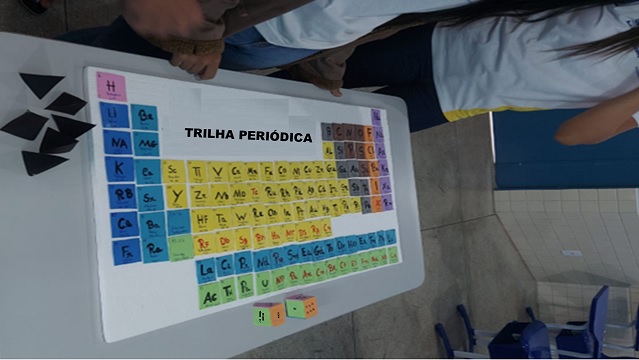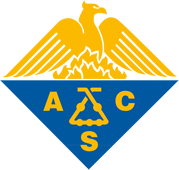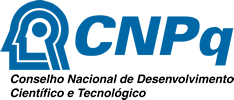Autores
Viroli, S.L.M. (IFTO CAMPUS PARAÍSO DO TOCANTINS) ; Lança, A.C. (UFT CAMPUS GURUPI) ; Carvalho, N.P. (IFTO CAMPUS PARAÍSO DO TOCANTINS) ; Alves, T.T. (UFT CAMPUS GURUPI) ; Soares, G.B. (IFTO CAMPUS PARAÍSO DO TOCANTINS)
Resumo
Chemistry teaching in Brazil is mostly traditional and lacks understanding of a
problem situation. One possibility of reversing this context is the use of an
innovative methodology in a dynamic and relaxed way. The work proposed the
evaluation of the game "Periodic Trail" by students of the 1st Year of High
School, as an instrument for teaching the periodic table, name of chemical
elements and their symbols, classification of elements and periodic properties.
Questionnaires were applied before and after the game. Values equal to or greater
than 80% were observed in all items evaluated after the application of the game,
showing a great acceptance and contribution of the playful activity to a
significant learning about the periodic table content.
Palavras chaves
Game; Chemistry teaching; Learning object
Introdução
Chemistry teaching in Brazil is mostly traditional based on lectures based on
the textbook as the main pedagogical means, without any relation to the
student's daily life, content taught in a repetitive way almost always requiring
memorization, low cognitive levels and lack of knowledge. understanding of a
problem situation (LOBATO et al., 2019; MENDES et al., 2019). Some school
environments reflect students' dissatisfaction and dissatisfaction, making
meaningful learning impossible, privileging inappropriate abstraction, self-
indulgence discouraging student research and participation (LOBATO et al., 2019;
MENDES et al., 2019; SANTOS et al., 2019). One possibility of reversing this
context is the use of an innovative methodology, teaching content in a dynamic
and relaxed way, allowing increased student motivation, arousing more interest
in learning the content taught (LOBATO et al., 2019). Playful games applied to
the teaching of chemistry can help the teaching-learning process by promoting an
engaging environment with learning of various skills and can intensify the
performance of students in content with learning problems, healthy
competitiveness contributing and influencing the training of students,
integrating practice to a serious production of knowledge (LEÃO et al, 2019;
SANTOS et al., 2019). The moment the game is considered fun, the student
acquires knowledge in a pleasant way, arousing interest in certain content in
which he offers resistance (FERNANDES et al., 2019). Thus, it is proposed to
evaluate the game "Periodic Trail" for teaching periodic table, name and
classification of elements by students of the 1st year of high school.
Material e métodos
The study was carried out quantitatively (GIL, 2008), following a methodology
adapted from Souza, et al. (2016). The game was applied at the Rui Brasil
Cavalcante High School, Cidade de Miranorte, Tocantins. The sample consisted of
20 students from the 1st grade morning class MB 23.04. Styrofoam (100cm x 50cm x
2cm), 5 pins, colored EVA sheets, two numerical data (5cm x 5cm x 5cm) and
question (chemical element name, physical state at 25°C, representative or
transition, natural or artificial, period, family) glue, scissors and black
marker and ruler for making the game. Houses (5cm x 5cm) were made by tracing
vertical and horizontal lines on the styrofoam sheet, to represent the chemical
elements arranged in family and period with different EVA colors. The students
received instructions on how to use the game where: alkali metal, if you get it
right, go 3 spaces ahead; alkaline earth metal moves back 3 spaces on a miss;
noble gases, if wrong, goes back to hydrogen; halogen if right, advance to the
next alkali metal; chalcogen loses its turn. Questionnaires were applied before
and after the game. The application before the game served to assess students'
knowledge with the following questions: Do you know the organization of the
periodic table? Do you have trouble consulting the periodic table? Do you find
periodic table content difficult? After completing the game, the students were
asked the following questions: Did the game contribute to the learning of the
content? Did the game help to clarify doubts about the periodic table? After
playing the game, was there a better understanding of the periodic table? Do you
approve of the playful approach used? to evaluate the applied methodology.
Resultado e discussão
Graph 1 informs the answers to the students' questionnaires. Figure 1 represents
the applied periodic track game. According to the results observed in Graph 1,
the questionnaire applied before the game showed that 65% did not know the
organization of the periodic table, 60% had difficulties in consulting the
periodic table and 75% of the interviewees considered the content on the
periodic table difficult. These percentages demonstrate the need to use teaching
methodologies that produce significant learning. Mendes et al. (2019) found a
percentage of 54% of students who were unaware of the organization of the
periodic table. Cesario et al. (2013) it was observed that only 4.5% of the
students interviewed correctly answered the way in which the elements are
arranged in the Table. The questionnaire applied after playing the game showed
that 80% considered that the game contributed to the learning of the content,
85% said the game helped to clarify doubts about the periodic table, 90%
attested that after playing the game there was a better understanding on the
periodic table and 80% approved the playful approach used. Through the analysis
of the application of the didactic game, it was observed that the playful
approach performed presented values equal to or greater than 80% in all
questions questioned after the application of the game, evidencing a great
acceptance and contributing to a significant learning about the table content.
periodic. Fernandes et al. (2019), Lobato et al. (2019), Mendes et al. (2019)
corroborate the results obtained in the research, as these authors performing
playful activities on the periodic table with high school students observed that
their learning was favored by the games applied.


Figure 1. Periodic Track Game
Conclusões
It is concluded that the periodic trail game presented values equal to or greater
than 80% in all the questions asked after the application of the game, showing a
great acceptance and contributing to a significant learning about the periodic
table content. The playful approach fixed and evaluated the students' learning
about the Periodic Table and the chemical elements, becoming an alternative
teaching strategy for reorganization, retention and way of transmitting knowledge
in a relaxed and pleasant way, inducing the student to reflection and
construction of knowledge.
Agradecimentos
TO GOD, To the IFTO Paraíso do Tocantins campus
Referências
CEZARIO, A.F.R.; LIRA, T.R.; BATISTA, M.V.V.; SANTOS, J.E. (Des)conhecimentos dos alunos sobre tabela periódica. In: SIMÓSIO BRASILEIRO DE QUÍMICA, 13., 2015, Teresina. Anais Eletrônicos [...]. Teresina, 2015. Disponível em: http://www.abq.org.br/simpequi/2015/trabalhos/91/6870-20609.html. Acesso em: 12 maio. 2022
FERNANDES, G.S.; COSTA, A.N.S.; SILVA, J.P.; SILVA, A.N.; MELLO, T.; FANTINELL JÚNIOR, M.; LEÃO, M.F. Jogos didáticos como ferramenta que auxilia o ensino da tabela periódica para estudantes do 1º ano do ensino médio. In: CONGRESSO BRASILEIRO DE QUIMICA, 59., 2019, João Pessoa. Anais Eletrônicos [...]. João Pessoa, 2019. Disponível em: https://www.abq.org.br/cbq/2019/trabalhos/6/1615-28116.html. Acesso em: 23 jun. 2022. Acesso em: 10 maio. 2022.
GIL, A. C. Métodos e técnicas de pesquisa social. Antônio Carlos Gil. - 6. ed. - São Paulo: Atlas,2008.
LEÃO, M.F.; FANTINELL JÚNIOR, M.; COSTA, A.N.S.; ALVES, A.C.T. Jogos didáticos no ensino de ciências: maneira diferenciada de ensinar e aprender sobre poluição. In: CONGRESSO BRASILEIRO DE QUIMICA, 59., 2019, João Pessoa. Anais Eletrônicos [...]. João Pessoa, 2019. Disponível em: http://www.abq.org.br /cbq/2019/trabalhos/5/956-27759.html. Acesso em: 21 maio. 2022.
LOBATO, C.C.F.M.; SOUZA, R.B.P.; OLIVEIRA, J.S.; CORRÊA, S.M.V. Corrida periódica - uma metodologia alternativa para o conteúdo tabela periódica no ensino médio. In: CONGRESSO BRASILEIRO DE QUIMICA, 59., 2019, João Pessoa. Anais Eletrônicos [...]. João Pessoa, 2019. Disponível em: https://www.abq.org.br/cbq/2019/trabalhos/6/16
08-27878.html. Acesso em: 10 maio. 2022.
MENDES, M. H. de S.; MEDEIROS, I. G. de; ALBUQUERQUE, S. M. de; MIRANDA, I de S.; MIRANDA, A. M. S.; REIS, M.; OLIVEIRA, M. S. de; SILVA, S.; CRUZ, J. N. da. A utilização de jogo didático como ferramenta pedagógica no ensino de tabela periódica. In: CONGRESSO BRASILEIRO DE QUIMICA, 59., 2019, João Pessoa. Anais Eletrônicos [...]. João Pessoa, 2019. Acesso em: 10 maio. 2022. Disponível em: https://www.abq.org.br/cbq/2019/trabalhos/6/1570-25083.html. Acesso em: 23 jun. 2022
SANTOS, C.S.J.; GOIS, E.C.M.; MOURA, J.S.S.; DA COSTA, F.B.; ROCHA, R.L.P. aplicação do jogo de tabuleiro ‘corrida maluca de hidrocarboneto’: uma proposta de caráter lúdico no ensino de química. In: CONGRESSO BRASILEIRO DE QUIMICA, 57., 2017, Gramado. Anais Eletrônicos [...]. Gramado, 2017. Disponível em: https://www.abq.org.br/cbq/2017/trabalhos/6/12338-25036.html. Acesso em: 10 maio. 2022
SOUZA, C.de C. B. de; FROTA, R. C.; PEREIRA, M. Q.; GONÇALVES, J.; SOUZA, E. C. de; SILVA E SOUZA, S. H. da; SILVA, A. dos S. O jogo didático corrida na tabela periódica como proposta alternativa para o ensino de tabela periódica. In: SIMÓSIO BRASILEIRO DE QUÍMICA, 14., 2016, Belém. Anais Eletrônicos [...]. Belém, 2014. Disponível em: http://www.abq.org.br/simpequi/2016/trabalhos/90/8897-22213.html#. Acesso em: 10 maio. 2022
















